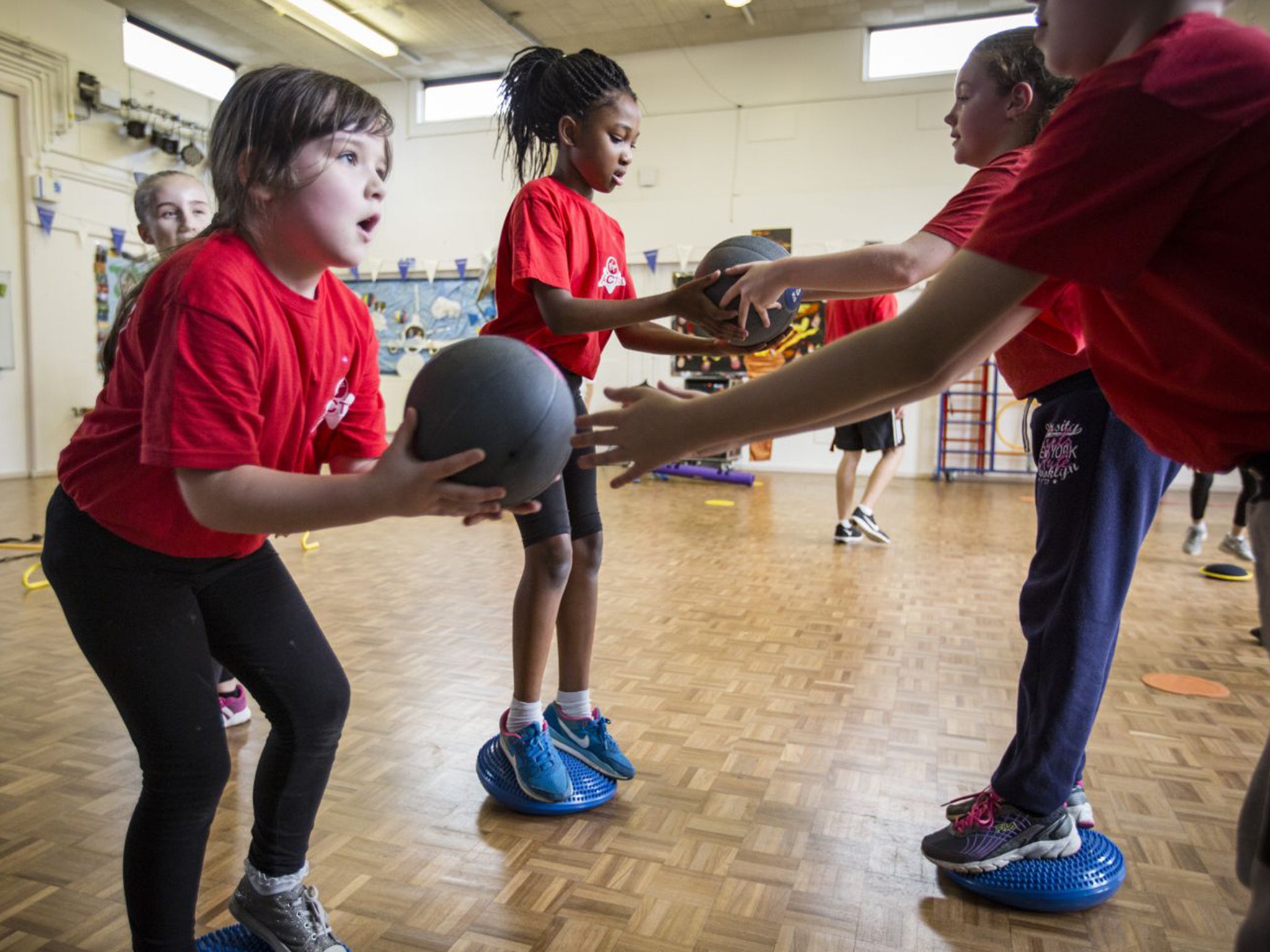PE for all? Not just a slogan but an effective educational innovation
Exercise is good for thinking, and physical confidence is good for social confidence and academic confidence

PE for children who do not like PE: it is an attractive slogan for the majority who are not the fastest, the strongest or blessed with the best hand-to-eye co-ordination. As Richard Garner, our Education Editor, reports today, it is not just a slogan but an effective educational innovation.
At Lings Primary School in Northampton, the Active Crew programme, which includes crawling like bears and balancing on wobble boards, has been associated with improvements in attendance and in English and maths test results.
Of course, this may be, in part, a demonstration of the Hawthorne effect: that any change in a working environment tends to lead to higher productivity in the short term. The effect is named after the Hawthorne Works outside Chicago, where workers worked harder when lighting was made brighter, or when it was made dimmer. The changes were made in the 1920s, as managers experimented to try to find out how to increase output, and it was not until 1958 that it dawned on a researcher that it did not matter what the change was: anything that made the workers feel they were being observed made a difference.
But there are good reasons for thinking that enjoyable and not-necessarily competitive physical activity is good for learning – quite apart from it being a good thing in itself. People learn in different ways. Exercise is good for thinking, and physical confidence is good for social confidence and academic confidence.
This newspaper has always argued that the best approach to raising educational standards is not to impose a single model on schools but to combine high expectations with diverse approaches, and to respond quickly to the evidence of what works and what does not.
That is why the networked approach of the Youth Sport Trust, which designed the Active Crew programme at 30 schools, including Lings, is a good idea. If it works in one school it can easily be replicated at others – in the jargon, it is “scaleable”. The idea is not an alternative to competitive sport. We do not need to go down the dead end of that old debate. Sporting excellence is a good thing and should be nurtured and worked on, but by definition only a few will be the best, and most of us will know from our school days that the people who are good at one sport tend to be good at others.
The beauty of the Active Crew approach is that it is for everyone, which is what PE often pretends to be – but not always successfully. The early success of this programme is relevant to confusion over the Government’s obesity strategy. As we report today, Susan Jebb, the “obesity tsar”, left her post last year and has not been replaced.
The loss of a “tsar” is no bad thing in itself. There are too many of these gimmicky appointments and, whether we are looking at educational standards or obesity, the best initiatives are probably those that spread from below rather than those that are imposed from the top.
Our view is that schemes such as Active Crew are more likely to be effective in dealing with obesity than some of the ideas that are being fought over in Whitehall as Jane Ellison, the health minister, tries to put together the obesity strategy document, expected to be published this month. A sugar tax, which is not expected to be in the document, and better labelling, which is, would be all very well, but it is more important to encourage people to be physically active.
And if children get into the habit of physical activity at primary school, that is the most important first step. On your paws and make like a bear.
Join our commenting forum
Join thought-provoking conversations, follow other Independent readers and see their replies
Comments
Bookmark popover
Removed from bookmarks